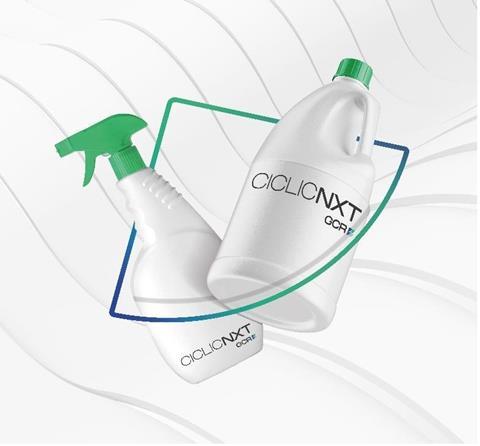
GCR has introduced CICLICNXT, a new line of high-performance post-consumer recycled (PCR) polyolefins.
In terms of potential applications, GCR says that its new line is suitable for use in both rigid and flexible packaging.
CICLICNXT has a number of certifications corresponding to quality, environmental responsibility and traceability issued by TÜV, AENOR, RecyClass and others.
The company’s application for food-grade approval is ongoing, however. GCR says that it is submitting dossiers to both the FDA and EFSA. For EFSA, it is collaborating within several consortia, and it expects to submit its FDA application by the end of the year.
The new solution is produced at GCR’s European mechanical recycling plant, which it says represents a €100 million investment and processes 100,000 metric tons per year of post-consumer material, including 80,000 tons of rigid and 20,000 tons of flexible polyolefins.
The plant integrates sorting, washing, and compounding technology, low-energy processing, and a closed-loop water purification system
A number of tools are featured at the plant, including gas chromatography systems. This technology seeks to enable precise detection of VOCs (volatile organic compounds), NVOCs (non-volatile organic compounds), and other contaminants such as SOIs (substances of interest) in recycled material streams.
“In today’s uncertain market, where recyclers face both cost and sustainability pressures, GCR has made, and continues to make, strategic investments in high-quality, sustainable recycling,” says Sandra Fernandez Freixa, Marketing and Sustainability Director at GCR.
“With the launch of CICLICNXT, we’re reinforcing our commitment to delivering reliable, highperformance PCR (post-consumer recycled) materials that help our customers meet regulations and support a more sustainable planet.”
If you liked this story, you might also enjoy:
The ultimate guide to the Packaging and Packaging Waste Regulation in 2025
How are the top brands progressing on packaging sustainability?
Everything you need to know about global packaging sustainability regulation in 2025
The key to increasing the use of reusable packaging in supermarkets











No comments yet